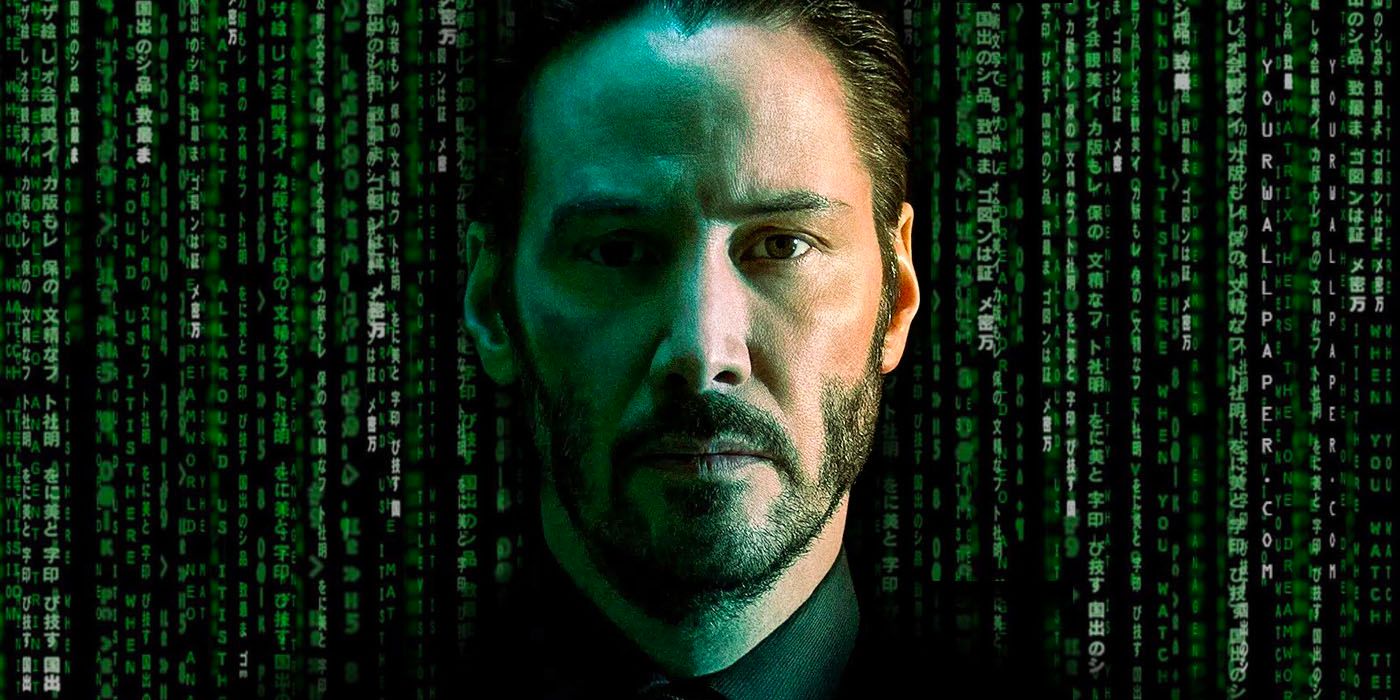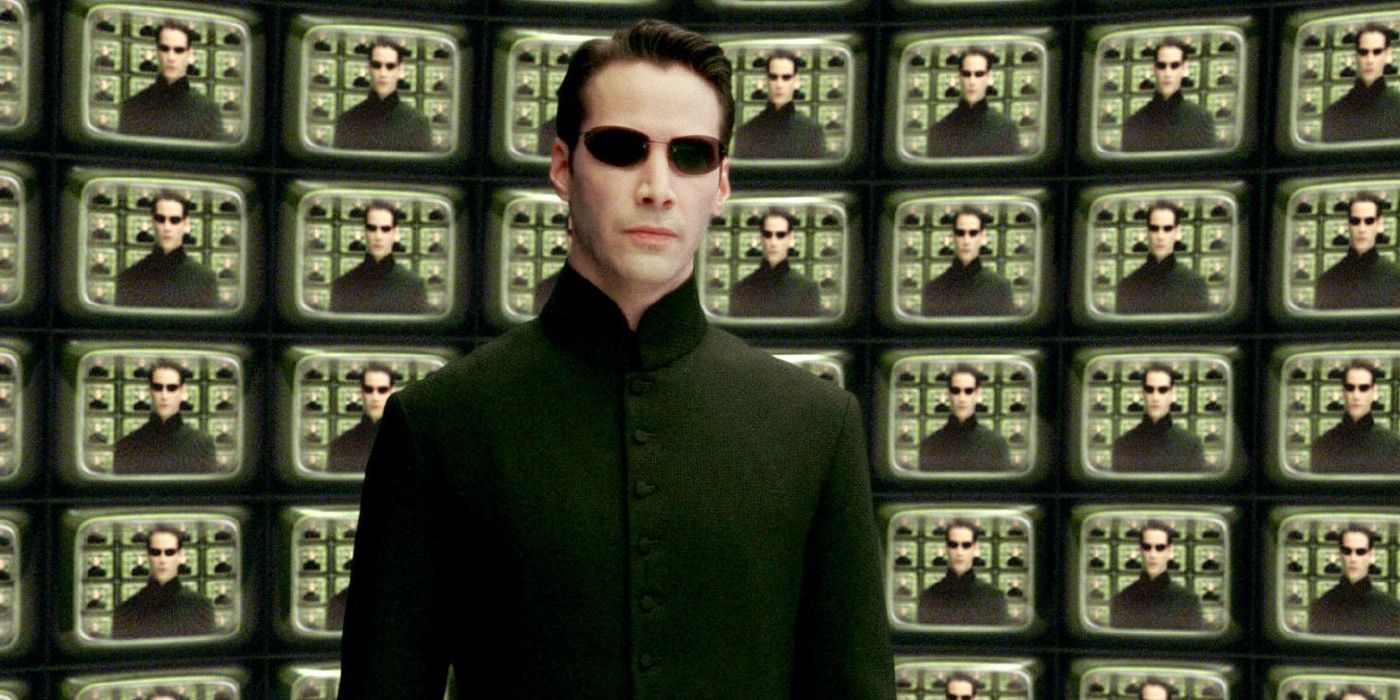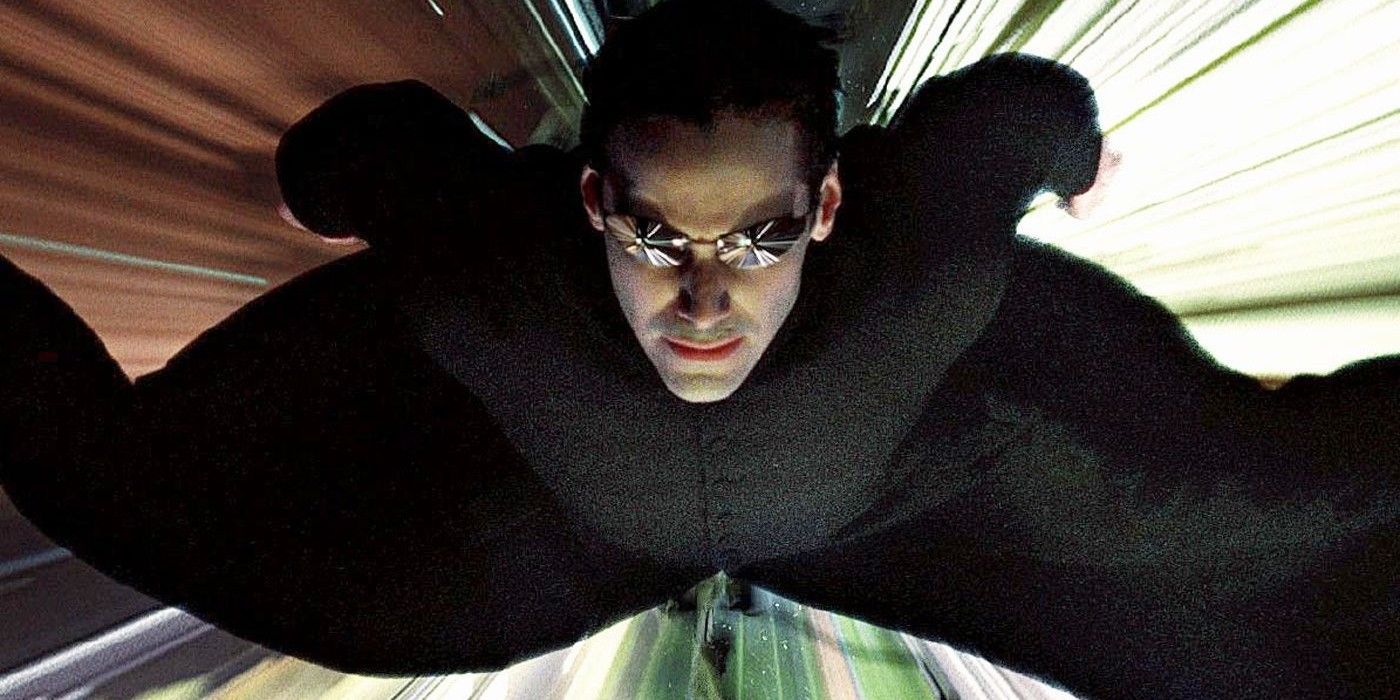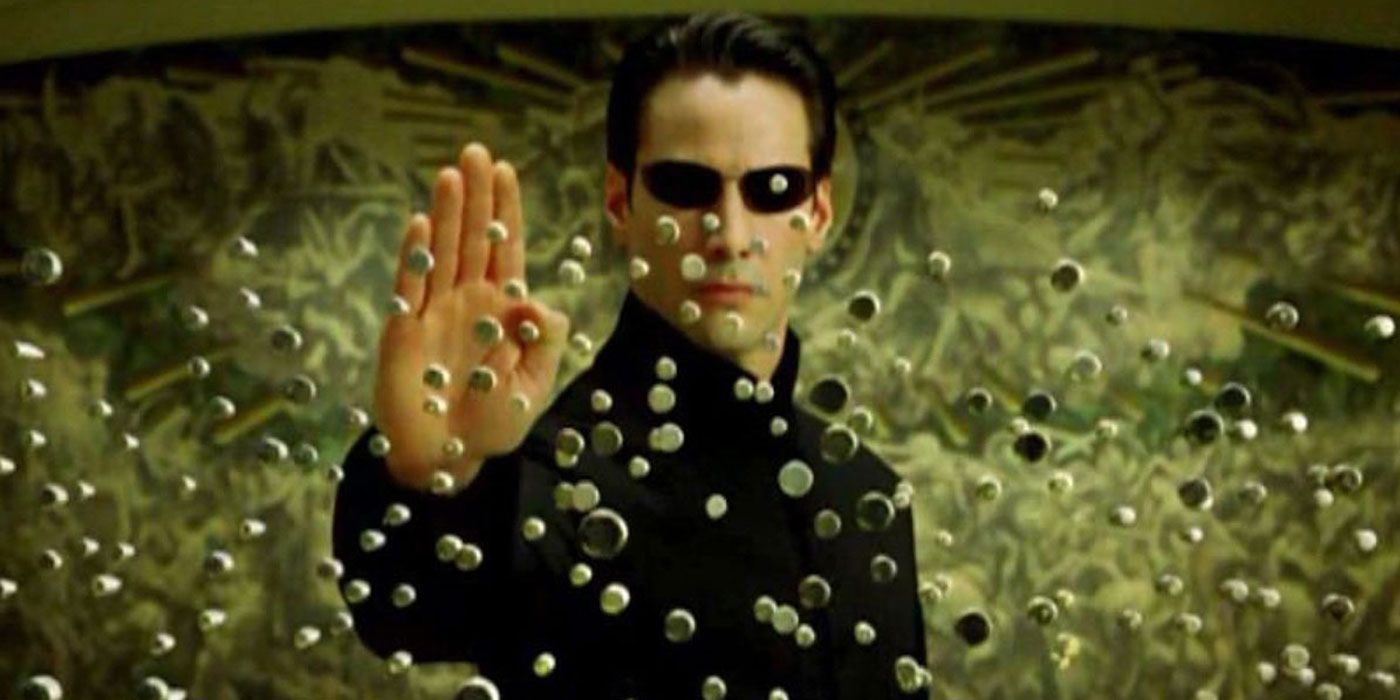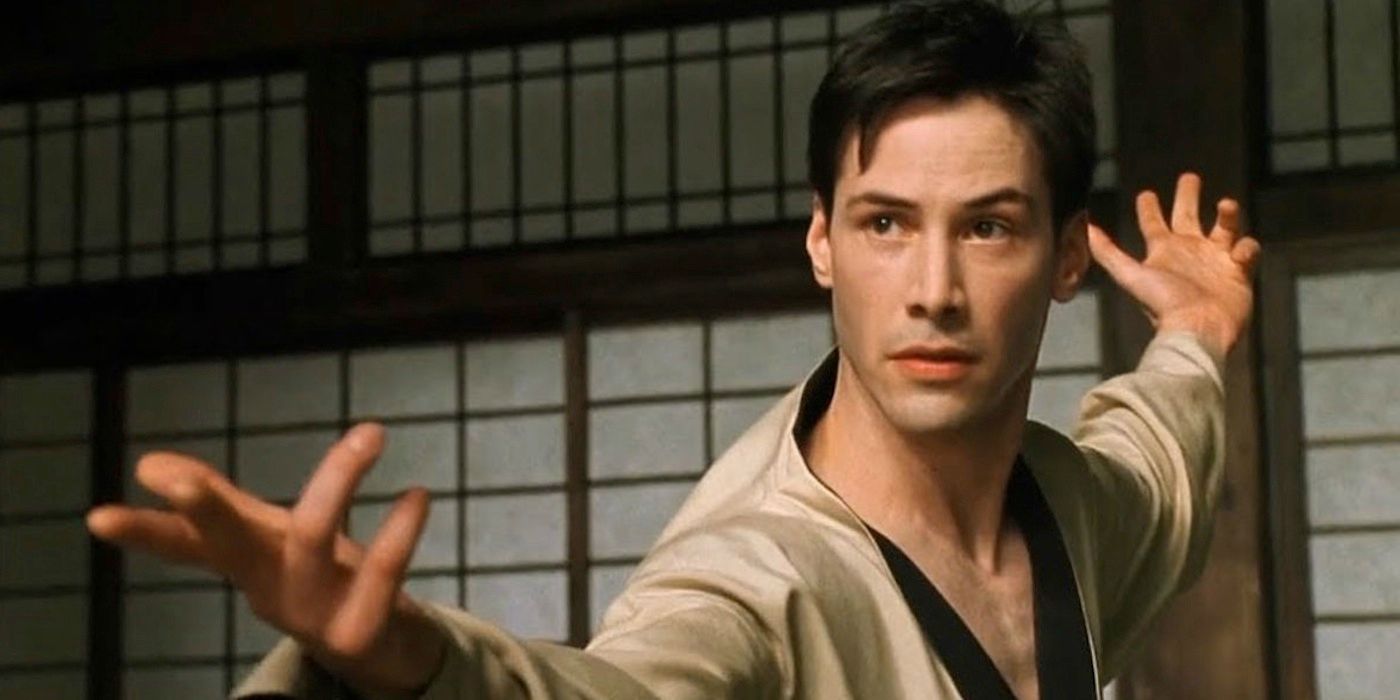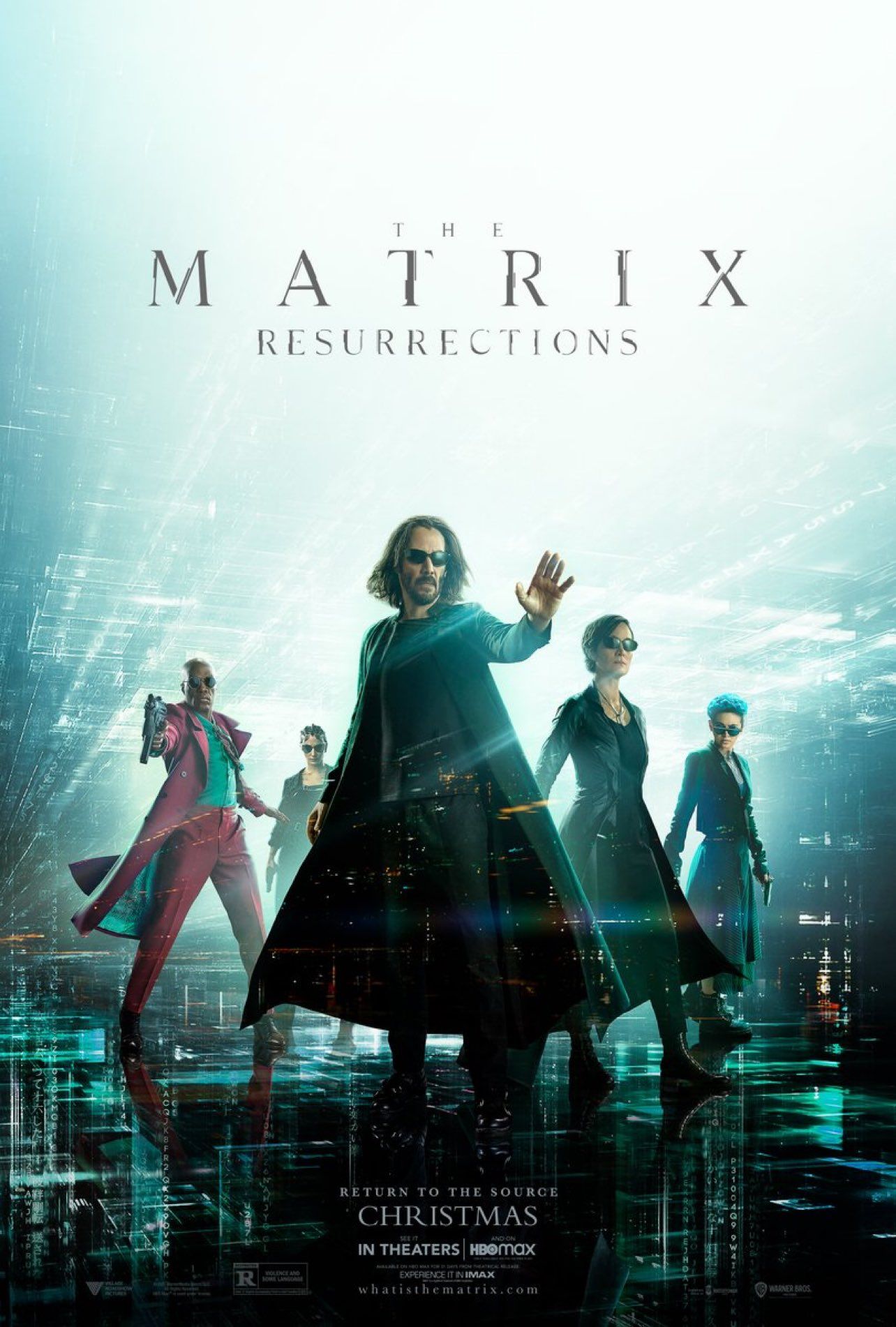Despite how bad the Matrix sequels were, The Matrix 4 is still an incredibly exciting prospect. While the latter two sequels in the franchise weren't as well-received as the first film, either by fans or critics, there's still much to look forward to in terms of the belated fourth movie. Released right at the tail end of the 1990s, The Matrix defined the cultural obsession with the internet and cyber-culture at the time by presenting a high-concept sci-fi story of simulations. The movie's slick and stylish wire-fu action sequences and revitalized cyberpunk aesthetic captivated audiences back in 1999 and were successful enough at the box office to ensure two sequels and a special place in pop culture for decades to come.
The world of The Matrix is one that, at first glance, seems to be a pastiche of the monotonous work culture of the 90s, but is quickly revealed to be a computer simulation used by a race of machines in order to enslave most of humanity in the far-flung future. The main character of the franchise, Neo (Keanu Reeves), is made aware of this simulation by a group of freedom fighters who believe him to be a prophesied messiah known as "The One." Throughout all three films, Neo must confront hostile programs from The Matrix as well as his own inner self-doubt as he learns to master his powers and embrace his destiny.
Though the first film in the series is considered a sci-fi masterpiece, The Matrix Reloaded and The Matrix Revolutions are widely considered to be inferior sequels to the original for many different reasons. This somewhat tainted reputation does not, however, stand in the way of the legions of fans ready to see just how Lana Wachowski plans on rejuvenating the franchise.
The Matrix Sequels Were Bad (& Ended The Franchise)
In 1999, when the first film was released, it was immediately an international hit that resonated with audiences of all different creeds. The Wachowskis always intended for the film to be a larger franchise, so when two sequels were announced, the general public was excited by the prospect of returning to the world of the Matrix and finding out about the fates of Neo, Morpheus (Lawrence Fishburne), Trinity (Carrie Ann-Moss), and the rest of Zion as a whole. Luckily for fans, both sequels were shot back to back from March 2001 to August 2002 and were both released six months apart in 2003.
Unfortunately, both Matrix sequels, Reloaded and Revolutions were met with tepid reception from critics and audiences alike. While Reloaded was commended for its inventive action sequences and deepening of the lore surrounding the Matrix simulation itself, both films were heavily criticized for their over-reliance on cartoonish CGI. Another subject of contention for the films was the perception that the sequels had fallen victim to their own pretensions, with the story becoming convoluted to the point of self-importance. This reception to the latter two films has arguably soured the general atmosphere surrounding the franchise as a whole, and it seems like most mentions of The Matrix also stop to poke fun at the negative reputation of the sequels. This was evident when The Matrix 4 was officially confirmed last year, with responses to the announcement ranging from genuine shock and surprise to apprehension and disappointment.
The Matrix 4 Is Highly Anticipated
Despite the negative reception to the sequels, recent months have seen a steady rise in hype for the return of the franchise, for several different reasons. One of the biggest factors is the air of mystery surrounding the upcoming sequel and if anything, the lack of substantive information has helped the hype grow. Aside from the return of Carrie Ann-Moss and Keanu Reeves - whose recent resurgence in popularity helps market any film he's in currently - as well as some additional casting choices, nothing is known about the story surrounding the film. There are many different factors at play here, of course, including which cycle of the Matrix the movie takes place in, whether or not Keanu Reeves will once again be The One, or if the fragile peace established between the humans and the machines at the end of Revolutions has continued to last. In an era where studios and movie trailers give away far too much information prior to the movie even releasing, it's refreshing and even exciting to have a major studio release coming up with little to no context being known.
Why The Matrix 4 Is So Exciting Despite The Sequels
On top of the returning characters and some new Matrix 4 actors, another element behind the anticipation for the upcoming sequel is that so much time has passed since the release of Reloaded and Revolutions that the movies are being re-examined from an analytical lens. With the benefit of hindsight and the ability to watch all three films back to back in a different cultural landscape, more people are recognizing the overarching themes driving the trilogy, as well as the massive impact that the Wachowski Sisters' usage of CGI has had on the industry. While the Matrix sequels certainly have their fair share of problems, they're also incredibly interesting and daring in their execution.
The Wachowskis have also recently confirmed that The Matrix was written with a transgender allegory in mind, confirming a theory that lots of fans have held over the years. This kind of social awareness retroactively makes the original films even more complex, and leaves certain fans wondering whether or not The Matrix 4 will be working within the framework of that kind of social allegory once again. Finally, with the surge of popularity that Keanu Reeves has experienced in recent years with the John Wick movies, fans are excited to see the actor return to the role that boosted him into international stardom.
How The Matrix 4 Can Avoid The Sequels' Mistakes
When The Matrix was first released, one of the biggest elements of praise for the film was the ingenuity of its fight choreographers and their dedication to using practical effects as much as possible. This certainly added to the allure of the movie and helped to make it as acclaimed and influential as it is in the action movie canon today. While Reloaded certainly had its fair share of iconic practical fight sequences (the chateau swordfight is still to this day one of the greatest action scenes of all-time), Revolutions (which actually teased The Matrix 4) doubled down on a super-powered CGI brawl in its third act that doesn't even come close to the inventiveness of other set-pieces in the franchise. With the strides made in visual effects since 2003, The Matrix 4 needs to find a perfect balance between authentic stunt-work and well-executed CGI. The foundations are there, and if anything, the John Wick films continue to show general audiences that practical fight scenes are the creme de la creme of action set-pieces.
The second and arguably biggest failings of the sequels that The Matrix 4 can rectify is the over-dependence on philosophical themes. The first movie in the series was chock full of thematic interpretations and complex symbolism, but it did so effortlessly, while simultaneously telling a coherent and easy-to-follow story. The problem with the final two movies in the trilogy is that their attempts to be allegorical and symbolic inevitably overshadowed the narrative flow of the storytelling, resulting in a final film that raises more questions than it answers. The Matrix 4 should take a cue from successful franchise returns such as The Force Awakens and Mad Max: Fury Road, and focus on telling a compelling and engaging story first while using subtext and subtlety to hint at its larger themes.

